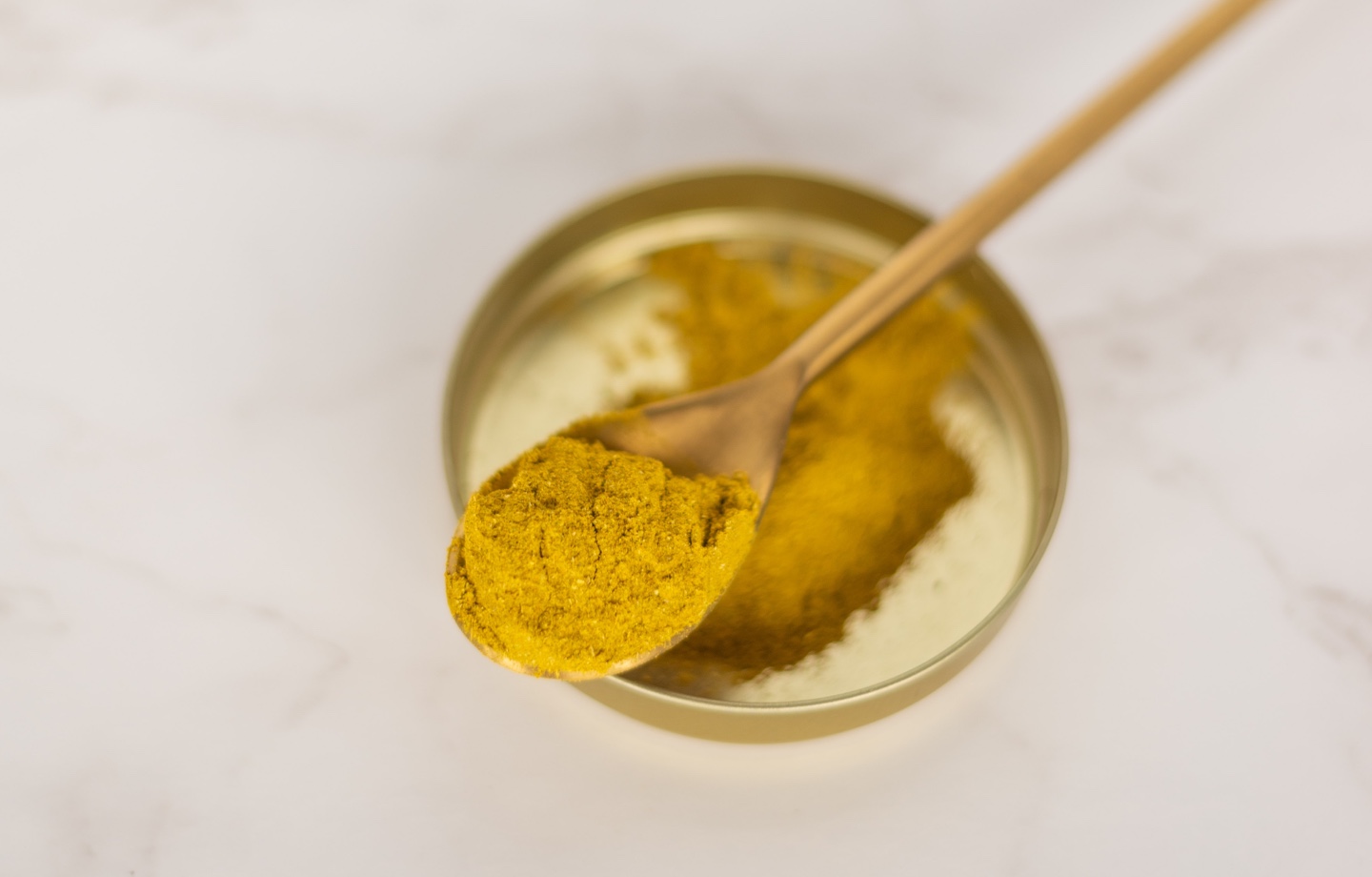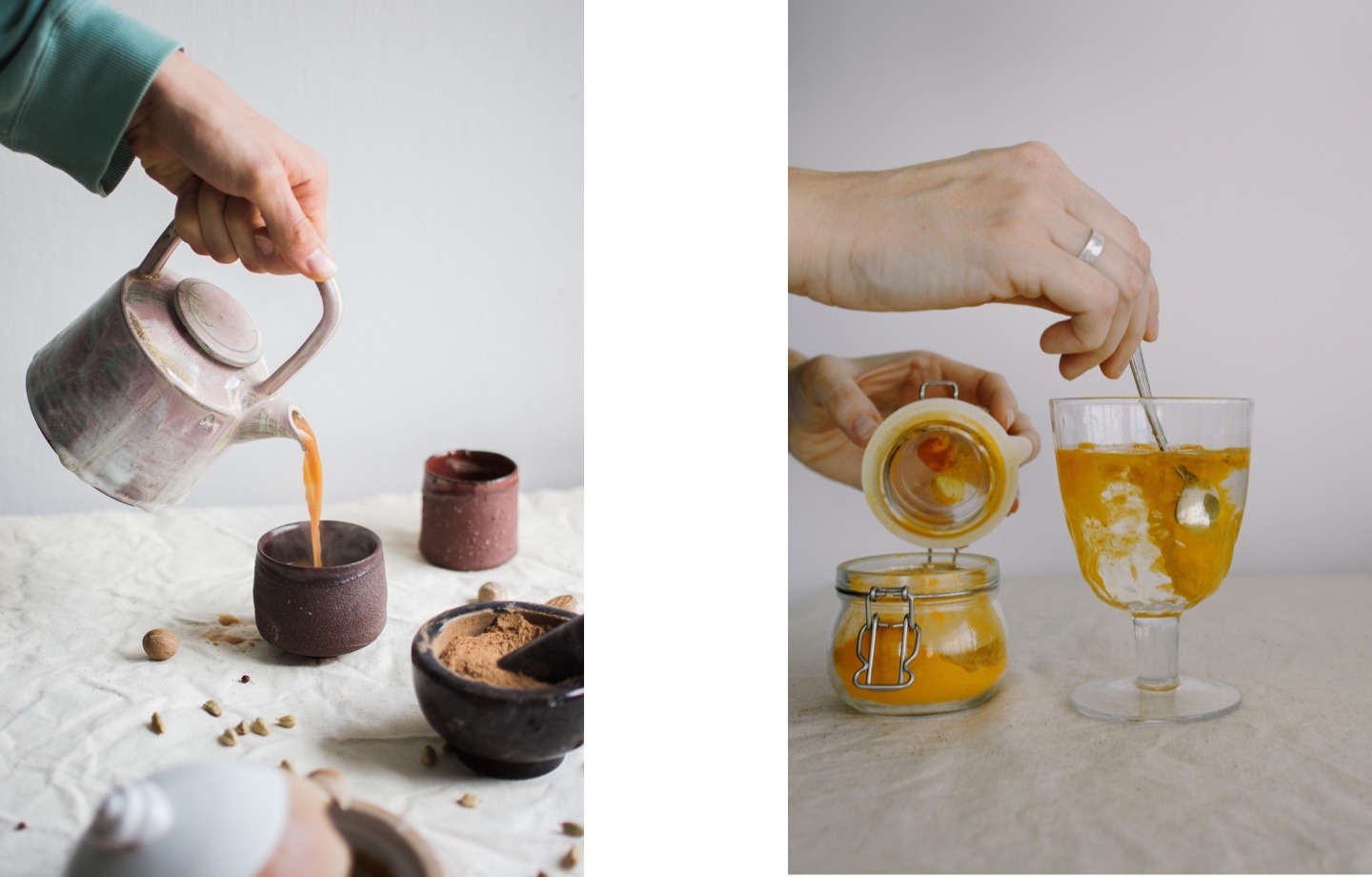This traditional Indian spice has long been recognized for its powerful healing properties. Here’s why it’s so good for you.
The origins of turmeric, a vivid, yellow-orange spice, go back nearly 4,000 years. During India’s Vedic era, the fragrant spice held great religious significance and was used widely to enhance rich, local cuisine.
Today, turmeric is still super popular, especially among those in the wellness industry. The bright, earthy spice is used in teas, supplements, and even face and body scrubs. And practitioners of Ayurveda — an ancient Indian system of philosophy, theology, and science — prize the root for its extensive medicinal and cultural value.
Read more: 5 Ayurveda Principles for More Balanced Sleep
It makes sense. Turmeric has numerous health benefits — it has been used to treat wounds and as a therapeutic for rheumatoid arthritis, digestive issues, and even cancer. The secret is the compound curcumin, which has both anti-inflammatory and antimicrobial properties. But that’s not all.
Here are the unique superpowers and health benefits of turmeric.
Promotes Healthy Skin
Because of its antibacterial and antiseptic qualities, turmeric is an ideal, all-natural treatment for acne. Not only does it remove redness, scarring, and inflammation associated with pesky pimples, it also helps regulate sebum, a greasy substance produced by sebaceous glands in our pores. (Overproduction can result in oily, acne-prone skin.)
The spice is also surprisingly effective at creating a healthy glow. Regular use can reduce fine lines and wrinkles as well as alleviate eczema and psoriasis.
To use turmeric on your skin, mix a spoonful with honey, coconut oil, or water for easy application. Apply generously to your face and neck, then wash off with warm water. But be careful while using the spice — it can cause temporary, bright yellow stains on the skin as well as not-so-temporary stains on clothing.
Don’t love the taste? You can still reap the same skin-renewing health benefits of turmeric by taking it as a supplement. Just be sure to consult your doctor before trying a turmeric supplement.

Reduces Period-Related Symptoms
Cramps, bloating, headaches, irritation, digestive issues, and a sudden craving for ice cream or a soft pretzel — for many women, these symptoms occur every month with their periods. Luckily, turmeric is shown to be an effective antidote.
Along with relieving the physiological period symptoms, turmeric can help improve the behavioral and mood effects of premenstrual syndrome, or PMS. When that time of the month rolls around, try a hot cup of turmeric tea and honey for comfort and relaxation.
Read more: Our Grounding Golden Turmeric Smoothie Recipe
Helps Prevent Heart Disease
Globally, heart disease is the number one cause of death, and it is an incredibly complicated condition, so taking action early in your life to prevent it is key.
The good news is, several studies show that turmeric, or curcumin, can help reverse the progression of heart disease, and — most importantly — help improve the function of the endothelium, the lining of your blood vessels. The savory spice can also help reduce inflammation and oxidation, which play a major role in heart disease and several other conditions, such as Alzheimer’s and cancer.
May Help Prevent Cancer
Cancer is caused by uncontrolled cell growth — and it can potentially be treated with turmeric (curcumin) supplements. Studies show that ingesting supplemental amounts of the spice can get rid of cancerous cells, reduce angiogenesis (growth of new blood vessels in tumors), and reduce metastasis, the deadly spread of cancer. Scientists believe that turmeric can help kill cancer cells in patients suffering from lung, breast, prostate, and colon cancers, and even help chemotherapy work more efficiently. In fact, some studies suggest that taking regular curcumin supplements may help prevent cancer altogether in some patients.

May Help With Depression
Mood disorders such as depression are often difficult to treat. Doctors, healers, and religious figures have relied on pharmaceuticals, yoga, prayer, and even a change in diet to help alleviate the symptoms of depression. There’s no one-size-fits-all solution. But a few small studies show that turmeric supplements, because of their ability to reduce inflammation, can have a positive effect on mood.
Some research also suggests that taking curcumin alongside traditional antidepressants can help maximize their benefit. However, there is no evidence that these supplements are an appropriate substitute for prescription pharmaceuticals and you should always consult your doctor before adding a new supplement to your routine.
Read more: 5 Ingredients to Boost Your Immunity Naturally
Have feedback on our story? Email [email protected] to let us know what you think!

Shop Pillows
The Essential Organic Pillow Collection
Gentle, breathable, non-toxic support.





